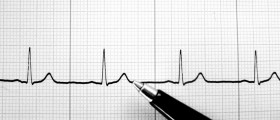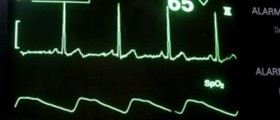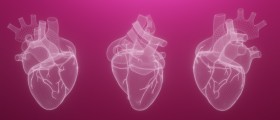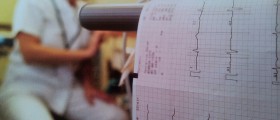
Ventricular tachycardia and the main symptoms
Heart ventricles are chambers which have the function of collecting the blood that is received from an atrium and expelling it towards the lungs and the rest of the body. Heart has the left and the right ventricle.
Ventricular tachycardia is a medical term for the heart rhythm which is in the range of 120 to 250 beats per minute and with 3 subsequent irregular heartbeats. This type of tachycardia originates in one of the heart ventricles, and thus the name. Since, it may cause very serious consequences or even death, it is considered to be one of the potentially life-threatening arrhythmia. It is often a consequence of heart attack, though it can sometimes lead to ventricular fibrillation, which is also a very serious condition. The most usual symptoms of too rapid heart rate include shortness of breath, rapid pulse rate, irregular heartbeat, pain in the chest, dizziness an fainting, though it is not excluded that a person with ventricular tachycardia may not experience any symptoms at all.
The causes of ventricular tachycardia
Ventricular tachycardia may be classified in several ways, and there are numerous causes. It is a result of abnormal electrical signals in ventricles, and the rapid beat of the heart does not allow them to pump the blood in the efficient way and in sufficient amounts. Besides the heart attack, it can also develop as a complication of many heart conditions, among which the most common are cardiomyopathy, myocarditis, valvular heart disease, surgery that is done on the heart, and it can also be a result of heart failure. However, besides heart diseases, ventricular tachycardia may be caused by the formation of scar tissue in the muscles of the ventricles, or it can be caused by lack of oxygen, anti-arrhythmic medications, or changes in the blood level of potassium, for example.
It can sometimes be prevented, like, for example, when certain heart diseases are treated in time, or when the level of potassium in blood is regulated, but there are also cases in which it cannot be predicted, nor treated. Factors which certainly contribute to the susceptibility of ventricular tachycardia are high blood pressure, smoking, too much alcohol or caffeine, overactive thyroid, and numerous other conditions, which is why it is important to control these factors that can be kept under control, before it is too late, or before the condition becomes so serious that the surgery is the only solution.

















Your thoughts on this
Loading...